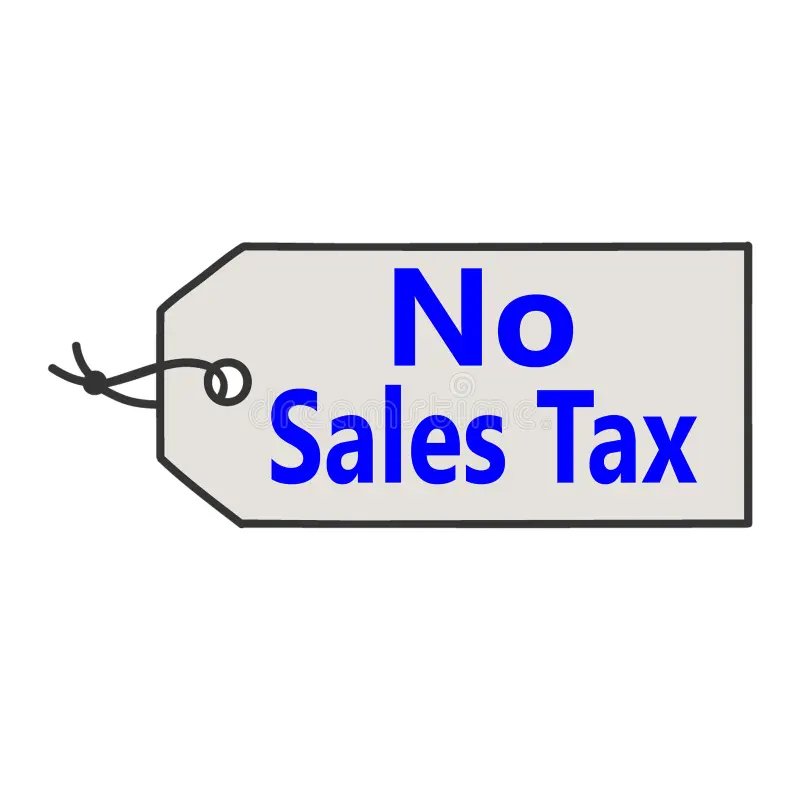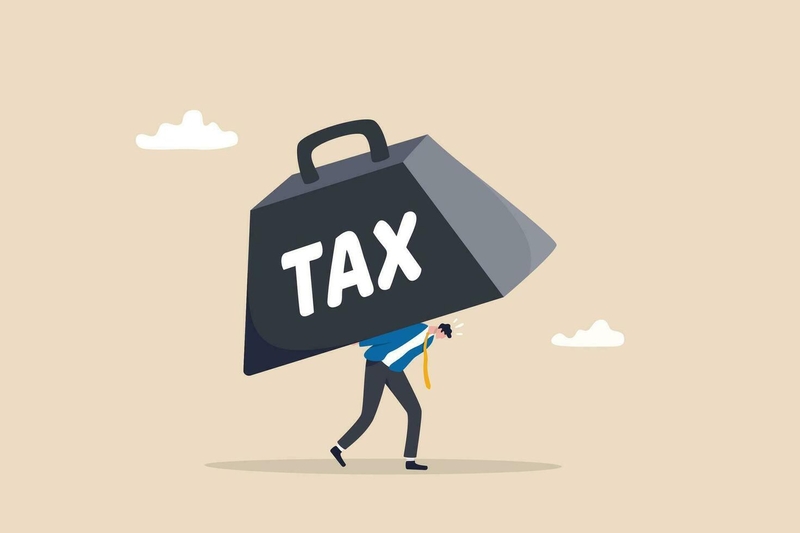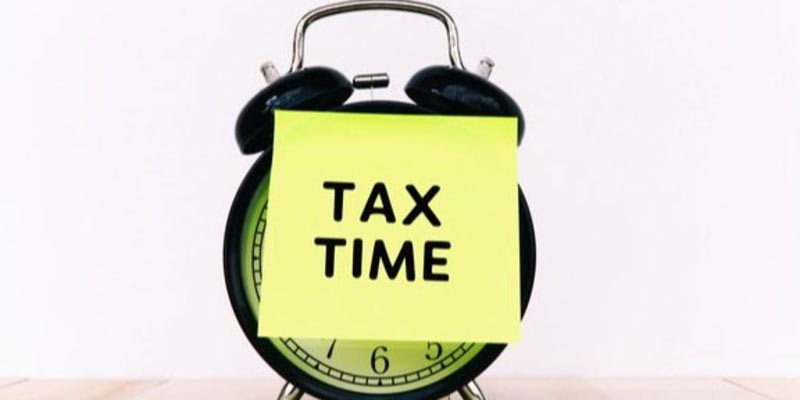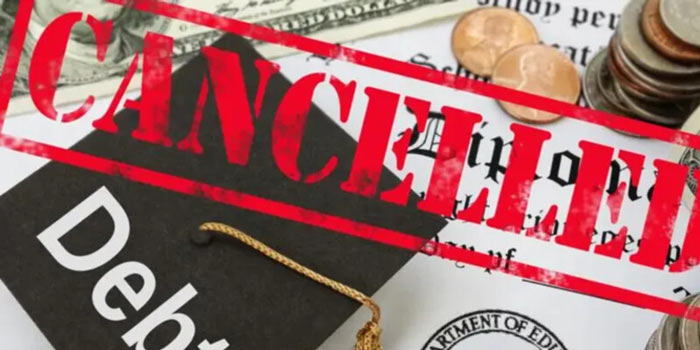3 Best States and 3 Worst States for Sales Tax
Sales taxes play a big role in the thinking of people and businesses because they affect how much buying power someone has or where money gets put. Knowing about the difference between sales tax rates from one state to another is very important for making good choices with money. In this article, we will discuss what states are the best and then worst when it comes to sales taxes.
Delaware - Among the Best for Businesses and Consumers
Delaware's tax environment, which lacks a state-level sales tax, is not its only beneficial feature. Being situated strategically on the East Coast and having favorable business laws make this place perfect for corporations. The nonexistence of sales tax in Delaware does not only invite businesses that want to set up their headquarters or operations here, but it also helps consumers by making prices lower than those found in nearby states. Moreover, the quick and smooth procedure of incorporation in Delaware along with its regulations that are favorable to business adds more attraction to its role as a center for trade and entrepreneurial activities.
Also, the absence of sales tax in Delaware has resulted in the growth of strong retail centers and shopping places. Because there are no extra taxes to pay, this makes businesses here able to give good prices that can pull customers from nearby states. The entry of these shoppers helps our state's economy by backing up local businesses and making more jobs available.
- Corporate Haven: Delaware's favorable tax laws extend beyond sales tax, making it a popular choice for incorporating businesses.
- Tourism Boost: The absence of sales tax makes Delaware an attractive shopping destination, attracting tourists and boosting the local economy.
Oregon - A Sales Tax-Free Haven

Oregon's identity as a sales tax-free haven is not only appealing for businesses trying to lower their tax responsibilities but also advantageous for consumers who enjoy cheaper prices and more purchasing ability. The dedication of the state to keeping this free-of-sales-tax environment highlights its focus on promoting economic development and creating a favorable atmosphere for business activities. Furthermore, Oregon's lively culture plus its natural elegance combined with its tax benefits make it an attractive place not just to start a business but also for visitors and tourism.
Moreover, the fact that Oregon doesn't have a sales tax adds to its image as an influencer in sustainable living and protecting the environment. By removing the requirement for managing and following sales tax rules, Oregon makes business activities simpler and cuts down on administrative costs. This gives companies more room to concentrate on new ideas and expansion.
- Sustainability Focus: Oregon's sales tax-free status aligns with its commitment to sustainability and environmental conservation.
- Business Efficiency: The absence of sales tax simplifies business operations, reducing administrative burdens and allowing companies to focus on growth.
Montana - Favorable Tax Climate for Consumers
The low rate of state-level sales tax in Montana helps it maintain its attraction as a consumer-friendly tax environment. Even though the state does have a sales tax, it's still one of the smallest across all states - this means that people living there can save money on their daily buys. The beautiful landscapes and chances for outdoor activities in Montana also draw tourists, which adds to the retail business and helps with the economy of this place.
Additionally, Montana's dedication to helping local businesses and protecting its special cultural legacy is similar in taxation. By having a good sales tax rate, Montana keeps things affordable for people living there while also being welcoming to business growth which leads to more entrepreneurship opportunities and overall economic progress..
- Tourist Magnet: Montana's low sales tax rate attracts tourists, boosting retail activity and supporting the state's economy.
- Local Business Support: A competitive sales tax rate promotes consumer spending, benefiting local businesses and preserving Montana's cultural identity.
Louisiana - High Sales Tax Rates Pose Challenges
The high sales tax rates, which have a heavy impact on buyers and companies alike, are the main reason Louisiana is ranked among the worst states for sales taxes. The total state and local average sales tax rate that goes beyond 9% is more than the national median. It leads to increased prices of goods and services for people living in Louisiana. This higher burden of taxation might discourage consumer spending and slow down economic development inside the state, affecting businesses from different sectors.
In addition, the fact that Louisiana depends greatly on sales tax money to support necessary services and build important infrastructure makes the problems caused by high sales taxation even more challenging. Sales tax income is very important for keeping public services going, but when there's too much taxing it can put a lot of pressure on household budgets and lessen spending that isn't necessary. This could harm businesses final results. Solving problems related to high rates of sales taxes needs a well-rounded tactic that takes into account both money needs and effects on the economy.
- Revenue Dependency: Louisiana relies heavily on sales tax revenue to fund essential services and infrastructure projects.
- Economic Impact: High sales tax rates can deter consumer spending and hinder economic growth within the state.
Arkansas - Burdened by Sales Tax

The difficulties for Arkansas in sales taxes are mainly because of the high state-level sales tax rate, which is more than the average across all states. Even though rates of local sales tax can differ, the basic rate at the state level remains considerable and affects how affordable goods and services are for people living here. This increased burden from taxes may limit how much people spend on buying things, making it less attractive for businesses to start or grow in Arkansas. It also impacts how competitive this state is economically.
Additionally, the sales tax structure in Arkansas does not include certain exemptions and incentives that could help to reduce the tax on people who buy things and businesses. If there are no specific actions taken to lessen the effect of sales taxes, it might be difficult for Arkansas to draw investment and keep skilled workers. This could make their economic problems even worse. Fixing the problems linked with rates of sales tax needs a complete strategy that thinks about what both businesses and customers need.
- Competitiveness Concerns: High sales tax rates can affect Arkansas's economic competitiveness, hindering investment and growth.
- Exemption Gaps: Arkansas's sales tax structure lacks certain exemptions and incentives, further burdening consumers and businesses.
Alabama - Complex Sales Tax System
Alabama's place among the worst states for sales taxes is mainly due to the complicated nature of its sales tax system. Having different rates in various jurisdictions and exceptions for specific items can make Alabama's sales tax structure confusing for both businesses and customers. This complexity creates administrative workloads and might discourage investment within the state, as companies struggle with compliance difficulties while navigating through complexities related to tax rules.
The fact that Alabama depends greatly on sales tax income to support crucial services emphasizes the need to make its tax system more efficient. If we simplify how sales tax is managed and lessen the weight of following regulations, it may better the business environment, promote starting new businesses, and boost economic expansion. Solving problems related to complicated sales taxes can help Alabama attract more investors and improve competitiveness.
- Compliance Challenges: Alabama's complex sales tax system poses administrative burdens for businesses, hindering economic growth.
- Streamlining Opportunities: Simplifying sales tax administration can improve the business climate and stimulate economic development within the state.
Conclusion
Understanding sales taxes means knowing the different rates and systems in various states. Some states may have low or no sales tax, making them more friendly for businesses. But, other places could be harder with higher rates that affect how much money both businesses and customers need to pay when buying things. If people and companies think about these things from this guide, they can decide better on how to handle their tax duties and make the most of their money strategies.












